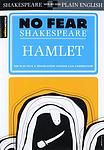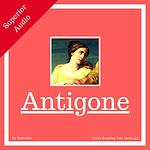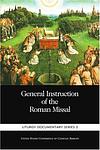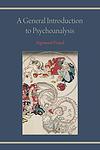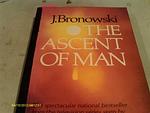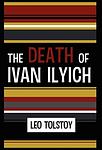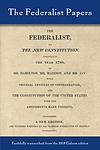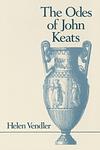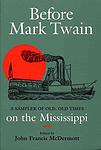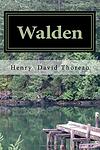Six Professors from "Esteemed" Universities Favorite Books
This is one of the 284 lists we use to generate our main The Greatest Books list.
-
Oedipus the King by Sophocles
"Oedipus the King" is a tragic play that revolves around the life of Oedipus, the king of Thebes, who is prophesied to kill his father and marry his mother. Despite his attempts to avoid this fate, Oedipus unknowingly fulfills the prophecy. When he discovers the truth about his actions, he blinds himself in despair. The play explores themes of fate, free will, and the quest for truth, highlighting the tragic consequences of human hubris and ignorance.
-
The Iliad by Homer
This epic poem focuses on the final weeks of the Trojan War, a conflict between the city of Troy and the Greek city-states. The story explores themes of war, honor, wrath, and divine intervention, with a particular focus on the Greek hero Achilles, whose anger and refusal to fight have devastating consequences. The narrative also delves into the lives of the gods, their relationships with humans, and their influence on the course of events.
-
First Folio by William Shakespeare
This collection is a compilation of 36 plays by a renowned English playwright, published seven years after his death. It includes comedies, histories, and tragedies, some of which had never been published before. Notable works in the compilation include "Macbeth," "Julius Caesar," "Twelfth Night," "The Tempest," and "As You Like It." The collection is considered one of the most influential books ever published in the English language, as it preserved many of the playwright's works that might have otherwise been lost.
-
Ulysses by James Joyce
Set in Dublin, the novel follows a day in the life of Leopold Bloom, an advertising salesman, as he navigates the city. The narrative, heavily influenced by Homer's Odyssey, explores themes of identity, heroism, and the complexities of everyday life. It is renowned for its stream-of-consciousness style and complex structure, making it a challenging but rewarding read.
-
In Search of Lost Time by Marcel Proust
This renowned novel is a sweeping exploration of memory, love, art, and the passage of time, told through the narrator's recollections of his childhood and experiences into adulthood in the late 19th and early 20th century aristocratic France. The narrative is notable for its lengthy and intricate involuntary memory episodes, the most famous being the "madeleine episode". It explores the themes of time, space and memory, but also raises questions about the nature of art and literature, and the complex relationships between love, sexuality, and possession.
-
Antigone by Sophocles
This ancient Greek tragedy follows the story of Antigone, a young woman who defies the king's edict in order to bury her brother according to their religious customs. The king, her uncle, sentences her to death for her disobedience, leading to a series of tragic events including his own son's suicide. The play explores themes of loyalty, honor, obedience, and the conflict between the laws of the state and the laws of the gods.
-
Mourning Becomes Electra by Eugene O'Neill
"Mourning Becomes Electra" is a trilogy of plays that retells the Oresteia story of the House of Atreus in a modern American setting. The narrative explores the themes of revenge, obsession, and guilt within the Mannon family, who are haunted by a dark, cursed past. The plot follows the aftermath of the American Civil War, with the characters struggling to escape their tragic fate, ultimately leading to their downfall.
-
Ajax by Sophocles
"Ajax" is a classic Greek tragedy that revolves around the character of Ajax, a heroic warrior in the Trojan War who falls into a state of madness and despair when he is passed over for the honor of inheriting the armor of the fallen hero, Achilles. In his fury, Ajax slaughters a flock of sheep, believing them to be his comrades. When he regains his sanity and realizes what he has done, he is filled with shame and ultimately takes his own life. The play explores themes of honor, pride, and the tragic consequences of unchecked rage.
-
Women of Trachis by Sophocles
This ancient Greek tragedy follows the story of a woman who mistakenly kills her husband, a legendary hero, with a poisoned shirt. She had been given the shirt by a dying centaur who told her it would ensure her husband's loyalty. However, the centaur had actually been fatally wounded by the hero, and the shirt was soaked in the centaur's poisonous blood. The woman kills herself upon realizing her tragic mistake.
-
Philoctetes by Sophocles
"Philoctetes" is a Greek tragedy that tells the story of a skilled archer abandoned on a deserted island by the Greeks during the Trojan War, due to a foul-smelling wound on his foot. Years later, the Greeks discover a prophecy that they will need Philoctetes and his magical bow to win the war. They send Odysseus and Neoptolemus to retrieve him, leading to a moral dilemma as they must decide whether to deceive the bitter and mistrustful Philoctetes or to persuade him to willingly join their cause. The play explores themes of suffering, deceit, and the struggle between personal integrity and duty.
-
Oedipus at Colonus by Sophocles
"Oedipus at Colonus" is a tragic play that follows the final days of Oedipus, the former king of Thebes. Oedipus, now blind and exiled, arrives at the town of Colonus where he is initially rejected due to the curse that follows him. However, after revealing a prophecy that his burial place will bring prosperity to the city that hosts it, he is allowed to stay. The play explores themes of fate, guilt, and redemption, ending with Oedipus's peaceful death and ascension to a semi-divine status.
-
The Charterhouse of Parma by Stendhal
The novel follows the life of a young Italian nobleman, who, driven by romantic ideals and a thirst for adventure, leaves his comfortable life to join Napoleon's army. After surviving many trials and tribulations, he returns home to a life of political intrigue, love affairs, and power struggles in the court of Parma. The narrative provides a vivid and satirical depiction of the political and social life in Italy during the 19th century.
-
Paradise Lost by John Milton
"Paradise Lost" is an epic poem that explores the biblical story of Adam and Eve's fall from grace in the Garden of Eden. It delves into their temptation by Satan, their subsequent expulsion, and the consequences of their disobedience. The narrative also provides a complex portrayal of Satan as a rebellious angel, who, after being cast out of Heaven, seeks revenge by causing mankind's downfall. The poem is a profound exploration of free will, divine justice, and the human struggle with good and evil.
-
Electra by Sophocles
"Electra" is a classic Greek tragedy that revolves around the character of Electra and her thirst for revenge. After her father, the king, is murdered by her mother and her mother's lover, Electra and her brother, Orestes, plot to avenge their father's death. The story is a complex exploration of justice, vengeance, and familial duty, depicting Electra's struggle between her desire for revenge and the moral implications of matricide.
-
Moby Dick by Herman Melville
The novel is a detailed narrative of a vengeful sea captain's obsessive quest to hunt down a giant white sperm whale that bit off his leg. The captain's relentless pursuit, despite the warnings and concerns of his crew, leads them on a dangerous journey across the seas. The story is a complex exploration of good and evil, obsession, and the nature of reality, filled with rich descriptions of whaling and the sea.
-
The Odyssey by Homer
This epic poem follows the Greek hero Odysseus on his journey home after the fall of Troy. It takes Odysseus ten years to reach Ithaca after the ten-year Trojan War. Along the way, he encounters many obstacles including mythical creatures, divine beings, and natural disasters. Meanwhile, back in Ithaca, his wife Penelope and son Telemachus fend off suitors vying for Penelope's hand in marriage, believing Odysseus to be dead. The story concludes with Odysseus's return, his slaughter of the suitors, and his reunion with his family.
-
Don Quixote by Miguel de Cervantes
This classic novel follows the adventures of a man who, driven mad by reading too many chivalric romances, decides to become a knight-errant and roam the world righting wrongs under the name Don Quixote. Accompanied by his loyal squire, Sancho Panza, he battles windmills he believes to be giants and champions the virtuous lady Dulcinea, who is in reality a simple peasant girl. The book is a richly layered critique of the popular literature of Cervantes' time and a profound exploration of reality and illusion, madness and sanity.
-
The Bible by Unknown
The Bible is the central religious text of Christianity, comprising the Old and New Testaments. It features a diverse collection of writings including historical narratives, poetry, prophecies, and teachings. These texts chronicle the relationship between God and humanity, detail the life, death, and resurrection of Jesus Christ, and follow the early Christian church. Considered divinely inspired by believers, it serves as a foundational guide for faith and practice, influencing countless aspects of culture and society worldwide.
-
The Divine Comedy by Dante Alighieri
In this epic poem, the protagonist embarks on an extraordinary journey through Hell (Inferno), Purgatory (Purgatorio), and Paradise (Paradiso). Guided by the ancient Roman poet Virgil and his beloved Beatrice, he encounters various historical and mythological figures in each realm, witnessing the eternal consequences of earthly sins and virtues. The journey serves as an allegory for the soul's progression towards God, offering profound insights into the nature of good and evil, free will, and divine justice.
-
Absalom, Absalom! by William Faulkner
This novel is a complex narrative about Thomas Sutpen, a poor white man who rises to power in the South, aiming to create a dynasty that would rival the old aristocratic families. However, his ambitions are thwarted by his own flawed decisions and the overarching racial and societal tensions of the era. The story is not told in a linear fashion but rather through a series of interconnected flashbacks and narratives, offering different perspectives on the same events. The book explores themes of family, class, race, and the destructive power of obsession.
-
The Aeneid by Virgil
This epic poem tells the story of Aeneas, a Trojan who travels to Italy, where he becomes the ancestor of the Romans. It includes a series of prophecies about Rome's future and the deeds of heroic individuals, and is divided into two sections, the first illustrating the hero's journey and the second detailing the wars and battles that ensue as Aeneas attempts to establish a new home in Italy. The narrative is deeply imbued with themes of duty, fate, and divine intervention.
-
Anna Karenina by Leo Tolstoy
Set in 19th-century Russia, this novel revolves around the life of Anna Karenina, a high-society woman who, dissatisfied with her loveless marriage, embarks on a passionate affair with a charming officer named Count Vronsky. This scandalous affair leads to her social downfall, while parallel to this, the novel also explores the rural life and struggles of Levin, a landowner who seeks the meaning of life and true happiness. The book explores themes such as love, marriage, fidelity, societal norms, and the human quest for happiness.
-
Bleak House by Charles Dickens
"Bleak House" is a complex narrative that critiques the British judiciary system through a long-running legal case known as Jarndyce and Jarndyce. The story follows the lives of numerous characters, including the kind-hearted Esther Summerson, her friends Richard and Ada, and their guardian, Mr. Jarndyce, who are all caught in the web of a legal dispute over an inheritance. The novel is known for its detailed depiction of the legal system, its vivid characters, and its exploration of social issues of the time.
-
The Life of Samuel Johnson by James Boswell
"The Life of Samuel Johnson" is a comprehensive biography that chronicles the life of one of the most prominent English literary figures of the 18th century. The book provides an in-depth account of Samuel Johnson's life, his literary works, and his significant contribution to English literature. It also offers a detailed portrait of his personality, his relationships, his struggles with depression and illness, and his views on a variety of subjects. The book is as much a biography of Johnson as it is a portrayal of 18th-century England.
-
Democracy in America by Alexis de Tocqueville
This influential book offers an in-depth analysis of the strengths and weaknesses of 19th century American democracy. The author, a French political thinker, provides a detailed examination of the democratic process and its impact on society, politics, and the economy. The work highlights the importance of civil society, local institutions, and the spirit of equality in ensuring the stability of democracy. It also delves into the dangers of majority tyranny, the potential for democratic despotism, and the critical role of religion and morality in sustaining a democratic nation.
-
Dialogues Concerning Natural Religion by David Hume
This philosophical work is a series of discussions between three characters who explore the nature of God's existence through the lens of empirical evidence and reason. The dialogues delve into arguments for and against the existence of a divine creator, touching on the problem of evil, the argument from design, and the limits of human understanding. Through these conversations, the text critically examines the rational basis for religious belief, questioning the traditional arguments for God's existence and highlighting the complexities and contradictions inherent in theological explanations of the universe. The work is a seminal contribution to the philosophy of religion, showcasing the author's skepticism towards religious dogma and his commitment to empirical inquiry.
-
Gulliver's Travels by Jonathan Swift
This classic satire follows the travels of a surgeon and sea captain who embarks on a series of extraordinary voyages. The protagonist first finds himself shipwrecked on an island inhabited by tiny people, later discovers a land of giants, then encounters a society of intelligent horses, and finally lands on a floating island of scientists. Through these bizarre adventures, the novel explores themes of human nature, morality, and society, offering a scathing critique of European culture and the human condition.
-
Herzog by Saul Bellow
The novel centers around Moses Herzog, a middle-aged, intelligent yet distressed man who is going through a mid-life crisis. After his second marriage fails, he falls into a state of emotional turmoil and begins writing letters to friends, family, and even famous figures, expressing his philosophical thoughts and personal feelings. His journey of self-discovery and understanding forms the crux of the story. It's a profound exploration of a man's struggle with the complexities of life and his quest for meaning.
-
The Adventures of Huckleberry Finn by Mark Twain
The novel follows the journey of a young boy named Huckleberry Finn and a runaway slave named Jim as they travel down the Mississippi River on a raft. Set in the American South before the Civil War, the story explores themes of friendship, freedom, and the hypocrisy of society. Through various adventures and encounters with a host of colorful characters, Huck grapples with his personal values, often clashing with the societal norms of the time.
-
A General Introduction to Psycho-Analysis by Sigmund Freud
This book is a comprehensive introduction to the field of psychoanalysis, presented by its founder. It explores the unconscious mind, dreams, and the theory of neuroses. The author delves into the mechanisms of the mind, such as repression and resistance, and how these can lead to psychological issues. He also discusses his controversial theories on sexual desire as a driving force in human behavior. The book provides an in-depth understanding of the human psyche and the techniques used in psychoanalysis to treat mental disorders.
-
King Lear by William Shakespeare
This classic tragedy revolves around the aging King Lear, who decides to divide his kingdom among his three daughters based on their declarations of love for him. The two elder daughters, Goneril and Regan, flatter him with insincere praises, while the youngest, Cordelia, refuses to play the game and is disowned. As the king's sanity deteriorates, his kingdom falls into chaos under the rule of his deceitful elder daughters. The play explores themes of power, loyalty, madness, and justice, culminating in a tragic ending where almost all the main characters, including King Lear and Cordelia, die.
-
Leviathan by Thomas Hobbes
"Leviathan" is a seminal work of political philosophy that presents an argument for a social contract and rule by an absolute sovereign. The author argues that civil peace and social unity are best achieved by the establishment of a commonwealth through social contract. He suggests that without a strong, central authority to impose law and order, society would descend into a state of nature, characterized by perpetual war and chaos. The book is divided into four parts: Of Man, Of Commonwealth, Of a Christian Commonwealth, and Of the Kingdom of Darkness.
-
Madame Bovary by Gustave Flaubert
Madame Bovary is a tragic novel about a young woman, Emma Bovary, who is married to a dull, but kind-hearted doctor. Dissatisfied with her life, she embarks on a series of extramarital affairs and indulges in a luxurious lifestyle in an attempt to escape the banalities and emptiness of provincial life. Her desire for passion and excitement leads her down a path of financial ruin and despair, ultimately resulting in a tragic end.
-
Stop Time by Frank Conroy
This memoir captures the essence of growing up in America during the mid-20th century, weaving together the poignant, often painful experiences of the author's youth. Through a series of vividly recounted episodes, the narrative explores themes of isolation, the search for identity, and the struggle to find coherence in a fragmented world. The author's journey from a troubled childhood through to adulthood is rendered with acute sensitivity and introspection, offering a deeply personal yet universally resonant exploration of the passage of time and the process of self-discovery.
-
Stories Of Three Decades by Thomas Mann
"Stories of Three Decades" is a collection of short stories that spans the breadth of a renowned writer's career, offering a diverse range of narratives that reflect the social, psychological, and philosophical preoccupations of its era. The anthology showcases the author's mastery in exploring the human condition, with each story delving into themes of love, death, art, and the complexities of the modern world. Through a blend of realism and symbolism, the collection captures the tumultuous changes of the early 20th century and the timeless aspects of human experience, cementing the author's legacy as a pivotal figure in literary history.
-
The Ascent Of Man by Jacob Bronowski
This book is a profound exploration of the development of human society through its intellectual and technological advancements. It traces the journey of humanity from its primitive origins to the heights of scientific achievement, arguing that the progress of civilization is deeply intertwined with our capacity for understanding and manipulating the natural world. Through a series of thought-provoking essays, the work delves into the milestones of human invention and discovery, from the mastery of fire to the breakthroughs of quantum physics, emphasizing the role of creativity and scientific inquiry as the driving forces behind human evolution. The narrative not only celebrates the triumphs of the human intellect but also reflects on the moral and ethical responsibilities that come with knowledge, presenting a compelling case for the pursuit of wisdom as the foundation of a humane and progressive society.
-
The Book of Job by Israel
"The Book of Job" is a profound biblical narrative that explores the themes of faith, suffering, and divine justice. It tells the story of Job, a prosperous and righteous man who experiences immense suffering as he loses his wealth, children, and health. Despite his trials, Job maintains his faith in God, engaging in intense dialogues about human suffering and divine justice. The story concludes with God restoring Job's fortunes and blessing him more abundantly than before, demonstrating the inscrutable nature of divine wisdom and the rewards of unwavering faith.
-
The Brothers Karamazov by Fyodor Dostoevsky
This classic novel explores the complex, passionate, and troubled relationship between four brothers and their father in 19th century Russia. The narrative delves into the themes of faith, doubt, morality, and redemption, as each brother grapples with personal dilemmas and family conflicts. The story culminates in a dramatic trial following a murder, which serves as a microcosm of the moral and philosophical struggles faced by each character, and by extension, humanity itself.
-
The Death of Ivan Ilyich by Leo Tolstoy
The book is a poignant exploration of mortality and the human condition, focusing on a high-court judge in 19th-century Russia who lives a seemingly successful and conventional life. However, when he is confronted with a terminal illness, he begins to question the meaning and value of his life, leading to an existential crisis and eventual spiritual awakening. Through his struggle, he comes to realize the superficiality of his previous life and the importance of genuine human connection. His story is a profound commentary on the nature of life, death, and the pursuit of happiness.
-
The Complete Works of Plato by Plato
This comprehensive collection compiles the philosophical works of an influential Classical Greek philosopher. The book includes his dialogues, letters, and philosophical musings, exploring topics such as justice, beauty, truth, mathematics, politics, love, and virtue. The philosopher's ideas, including the theory of forms, the allegory of the cave, and the philosopher king, have had a profound impact on Western thought and continue to be studied and debated in modern philosophical and academic circles.
-
The Federalist Papers by Alexander Hamilton, James Madison, John Jay
"The Federalist Papers" is a collection of 85 articles and essays written to promote the ratification of the United States Constitution. These works discuss the benefits of a stronger national government, the proposed structure of the government, and the division of powers among its various branches. They also address criticisms of the Constitution and detail the failures of the Articles of Confederation. The papers remain a primary source for interpretation of the U.S. Constitution and the intentions of its framers.
-
The Golden Apples by Eudora Welty
"The Golden Apples" is a collection of interconnected short stories set in the fictional town of Morgana, Mississippi. The narratives follow various characters at different stages of their lives, providing a comprehensive picture of the town and its inhabitants. The stories are rich with symbolism and explore themes like love, loss, and the passage of time, all against the backdrop of Southern life and culture.
-
Odes by John Keats
"Odes" is a collection of poems that reflect on themes of love, beauty, death, and the passage of time. Through vivid imagery and powerful emotion, the author explores the human condition and our place in the world, often drawing on classical mythology and the natural world for inspiration. The poems are known for their intense lyricism and complex structure, making them some of the most celebrated in English literature.
-
Old Times On The Mississippi by Mark Twain
This work is a captivating memoir that offers a vivid portrayal of life on the Mississippi River during the latter half of the 19th century. Through a series of engaging anecdotes and reflections, the narrative delves into the author's experiences as a young steamboat pilot navigating the complex and ever-changing waters of the Mississippi. The text not only provides a detailed look at the challenges and intricacies of steamboat piloting but also paints a rich picture of the diverse cultures, communities, and characters that inhabited the riverbanks. With its blend of humor, insight, and historical detail, this memoir stands as a testament to a bygone era, offering readers a glimpse into the adventures and realities of river life in America's past.
-
The Temple by George Herbert
"The Temple" is a collection of religious poetry that explores the complexities of faith and the intimate relationship between the individual and the divine. Through a series of richly metaphorical poems, the work delves into themes of spiritual struggle, redemption, and the quest for grace. The poet uses the conceit of a church or temple to represent both the human soul and the broader Christian church, examining the tensions between earthly imperfections and the aspiration for heavenly perfection. The poems are characterized by their intricate wordplay, deep theological insight, and the personal, often introspective voice of the speaker, who seeks to reconcile the trials of earthly life with the promise of eternal salvation.
-
Tristram Shandy by Laurence Sterne
The novel is a humorous, rambling narrative that chronicles the life of Tristram Shandy. The story is filled with digressions, anecdotes, and eccentric characters, as Tristram often interrupts his own tale to interject commentary or to recount stories from his family's past. Despite the seemingly haphazard structure, the novel is a clever exploration of narrative form and a satirical critique of traditional biographies and novels.
-
Walden by Henry David Thoreau
This work is a reflection upon simple living in natural surroundings, inspired by the author's two-year experience of living in a cabin near a woodland pond. Filled with philosophical insights, observations on nature, and declarations of independence from societal expectations, the book is a critique of the complexities of modern civilization and a call to appreciate the beauty and simplicity of the natural world. It explores themes such as self-reliance, solitude, and the individual's relationship with nature.
-
War and Peace by Leo Tolstoy
Set in the backdrop of the Napoleonic era, the novel presents a panorama of Russian society and its descent into the chaos of war. It follows the interconnected lives of five aristocratic families, their struggles, romances, and personal journeys through the tumultuous period of history. The narrative explores themes of love, war, and the meaning of life, as it weaves together historical events with the personal stories of its characters.
Democrat and Chronicle (Newspaper), 48 Books
A newspaper article from the "Democrat and Chronicle" from 1982 where they asked 6 esteemed professors to list books that theyh would recommend to anyone as worth reading during a lifetime.
The voters were: Louis Rubin, Joseph Summers, R.W.B Lewis, Clark Blaise, Edward Rosenheim, and William Chace
Added about 2 months ago.
This list has a weight of 68%. To learn more about what this means please visit the Rankings page.
Here is a list of what is decreasing the importance of this list:
- Voters: 6-10 people voted
- Voters: are mostly from a single country/location
- List: only covers mostly "Western Canon" books
- Voters: diversity of voters is very low
If you think this is incorrect please e-mail us at [email protected].


